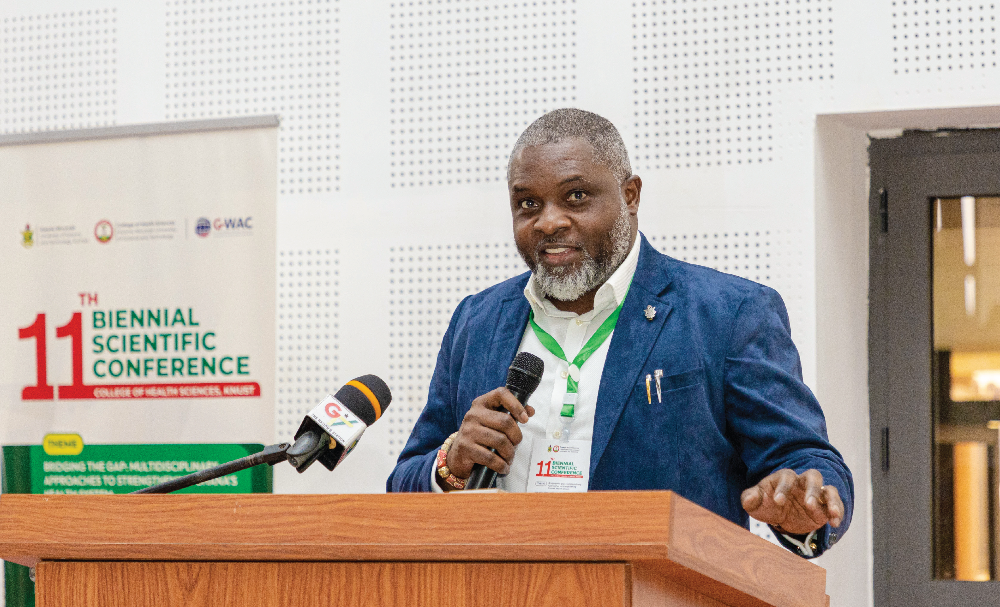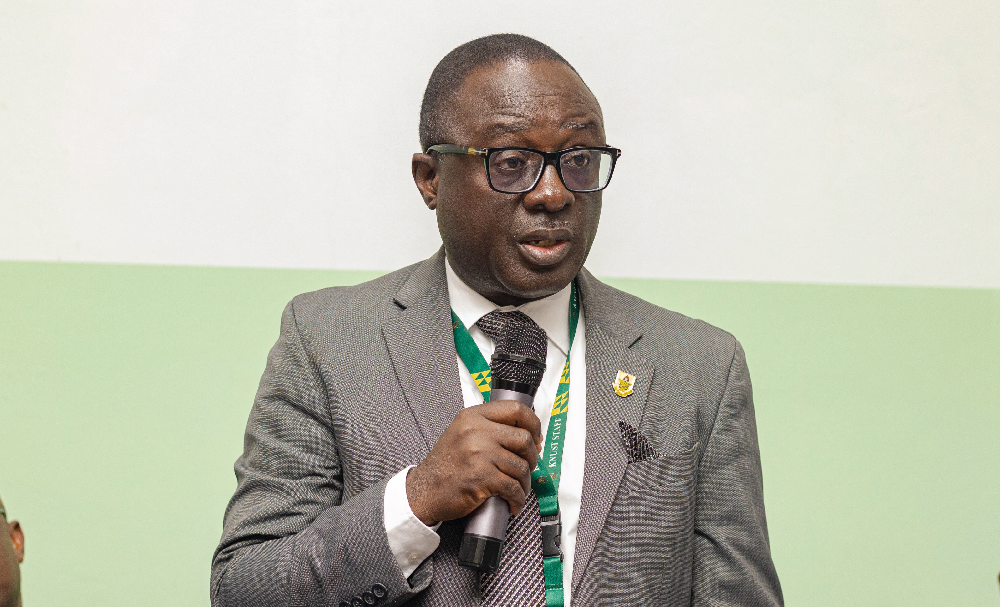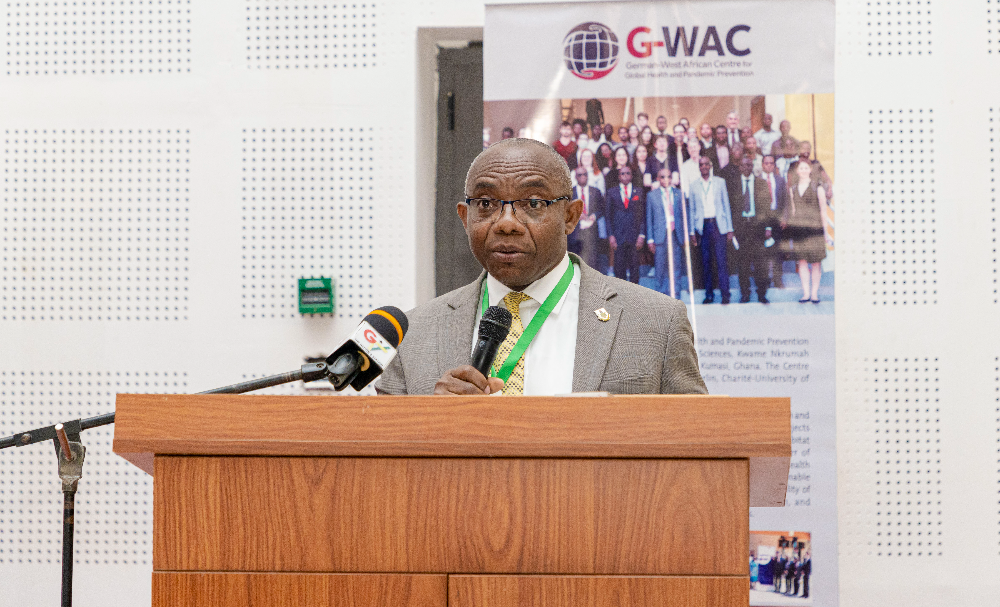The Provost of the College of Health Sciences Professor Christian Agyare has called for urgent multidisciplinary action to strengthen Ghana’s health system, stressing that collaboration across professions, research fields, and institutions is critical to bridging the gap between health policy and real impact.
Speaking at the 11th Biennial Scientific Conference of the College of Health Sciences, organized for the first time in collaboration with the Ghana West African Centre for Global Health and Pandemic Prevention (G-WAC), the Provost emphasized that the theme “Bridging the Gaps: Multidisciplinary Approaches to Strengthening Ghana’s Health System” aligns with Ghana’s health policy priorities and the Universal Health Coverage (UHC) roadmap.
He noted that both frameworks highlight the need to strengthen governance and leadership in healthcare, improve financing for equity and sustainability, retain skilled professionals, enhance health information systems for evidence-based decision-making, expand access to safe and effective medical products, and deliver integrated, people-centered health services.
“What bridges the gap between policy and impact is action, that is multidisciplinary, evidence-based, and culturally sensitive action,” the Provost stated.
He further highlighted that postgraduate students were given the opportunity to present their research findings at the conference, reflecting the College’s commitment to strengthening collective output as a unified team.
Drawing lessons from the COVID-19 pandemic, the Provost stressed that collaboration is indispensable.
“The COVID-19 pandemic taught us no single profession can address the most complex health crises. Ghana’s vaccination drive succeeded because public health experts, logisticians, data managers, clinicians, pharmacists, and nurses worked together. We must apply this collaboration not only in times of emergency but in our day-to-day healthcare delivery,” he said, adding, “The health of a nation is the wealth of a nation.”

Dr. John Amuasi, Director of G-WAC, echoed the Provost’s call, stressing the importance of interdisciplinary research in strengthening health security.
“Multidisciplinary approach has an important role to play in addressing health issues when it comes to health security. We believe that through interdisciplinary research we should be able to have new knowledge and information to help us find new solutions to curb these pandemics,” he said.
Delivering remarks on behalf of the Minister of Health, Kwabena Mintah Akandoh, the Chief Director of the Ministry of Health, Mr. Desmond Boateng, highlighted the urgency of collective action.
“We live in a time where diseases spread quickly, technology evolves faster, and communities demand more from their health systems, and no single profession, ministry, or sector can carry this burden alone. That is why this conference matters,” he said.
He urged stakeholders to remain united in delivering quality care.
“If you want to go fast, go alone; if you want to go far, go together. Strengthening Ghana’s health system is not a sprint, it is a long and urgent journey, one that we must work together,” he said.

Pro-Vice Chancellor of KNUST, Professor David Asamoah, emphasized the university’s commitment to a collective approach to healthcare. “At KNUST, we believe that knowledge must always meet action, and this conference reflects on that truth,” he said.
The opening ceremony ended with expert presentations on governance, leadership, the health workforce, system financing, and health information management by Dr. Kwei Asabir, Prof. Dr. Wilm Quentin, and Pharm. Dr. Mrs. Margretta Odame Antwi.
Solidarity messages were also shared by international partners, including Ms. Jansen Sivine, Head of Missions at the German Embassy in Accra; Ms. Hamma Cornelius, Program Manager of the German Academic Exchange Service (DAAD); and Ms. Lena Leumer, West Africa Regional Director of DAAD.


















